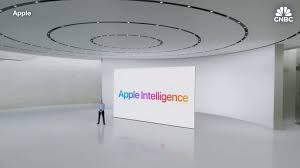Senior vice president of Software Engineering at Apple, Craig Federighi, recently discussed the company’s plans for Apple Intelligence in an interview with Fast Company. He focused on the company’s relationship with OpenAI and the direction that on-device AI is taking. The IT community was shocked when Apple revealed “Apple Intelligence” at WWDC 2024. The user experience is expected to be revolutionized by this set of AI technologies for Macs, iPads, and iPhones.
Integrated with OpenAI’s ChatGPT technology, a potent large language model (LLM) renowned for its text production capabilities, is the core of Apple Intelligence. With its historical emphasis on internal development, Apple is making a big change with this alliance. Federighi reaffirmed Apple’s dedication to protecting user privacy by saying that all information utilized by Apple Intelligence will stay on the user’s device. In comparison, certain cloud-based AI systems from competitors cause privacy issues.
The interview did, however, also imply that Apple Intelligence will expand beyond OpenAI’s products in the future. According to Federighi’s remarks, Apple may be open to a more varied AI environment in the future, including Google Gemini, its rival LLM, on iPhones. Choosing the AI model that best fits a user’s needs, for creative writing with one LLM or complicated coding duties with another, may be made possible by this user-centric approach.
Federighi acknowledged the limitations of existing hardware, even though the initial focus is on device-based AI. It can be resource-intensive to run sophisticated LLMs exclusively on devices. In response, he voiced optimism for processors in the future that could handle more potent AI models offline. He doesn’t think that this will completely replace the necessity for certain online communication, though. Apple Intelligence may occasionally need to visit external knowledge bases to give users the most recent information, even with breakthroughs in on-device processing.
There is a rising discussion about user control and access to a variety of AI solutions, which is reflected in this interview. Tech companies have always created exclusive AI systems on their own. An industry move towards user empowerment and a more competitive AI landscape is suggested by Apple’s willingness to include competitors such as Google Gemini.
Apple Intelligence has implications that go beyond user experience. The CEO of Tesla and an opponent of OpenAI, Elon Musk, has expressed reservations about Apple integrating ChatGPT, citing potential abuse. This emphasizes the requirement of responsible development and the ethical issues that arise with the use of sophisticated AI tools.
Federighi’s interview provides insightful information on Apple’s future AI vision, as the firm prepares to introduce Apple Intelligence later this year. This strategy is comprehensive and user-centric given its emphasis on user privacy, openness to various AI models, and recognition of on-device and online processing requirements. With the ability to completely change the way we interact with our gadgets, Apple Intelligence might usher in a new era of intelligent assistants that prioritize privacy while meeting individual requirements. In the upcoming months and years, it will be interesting to see how this plays out and how it affects the larger AI scene.

